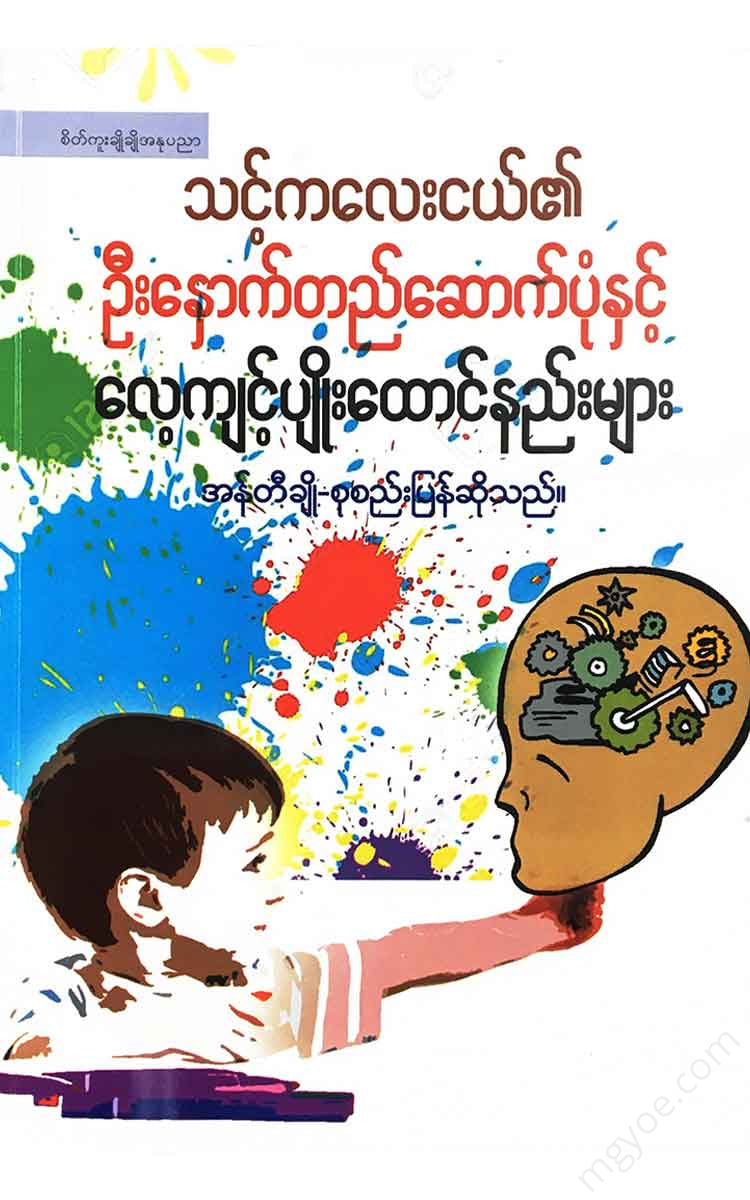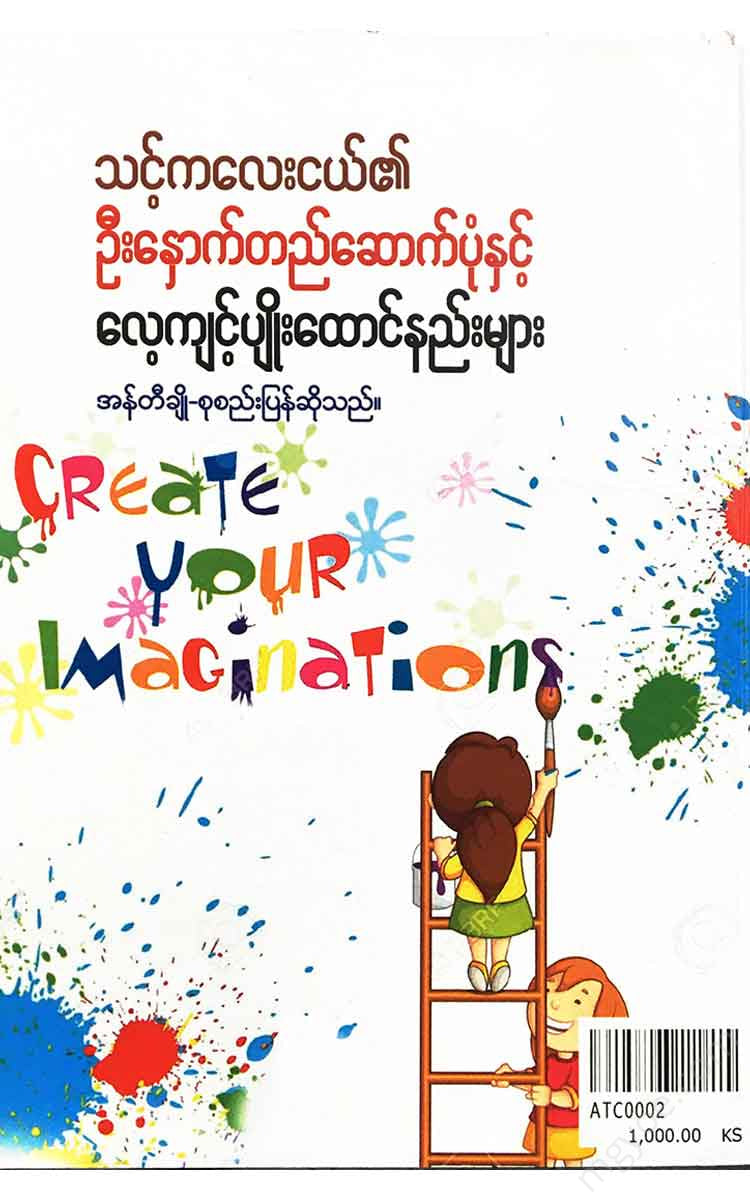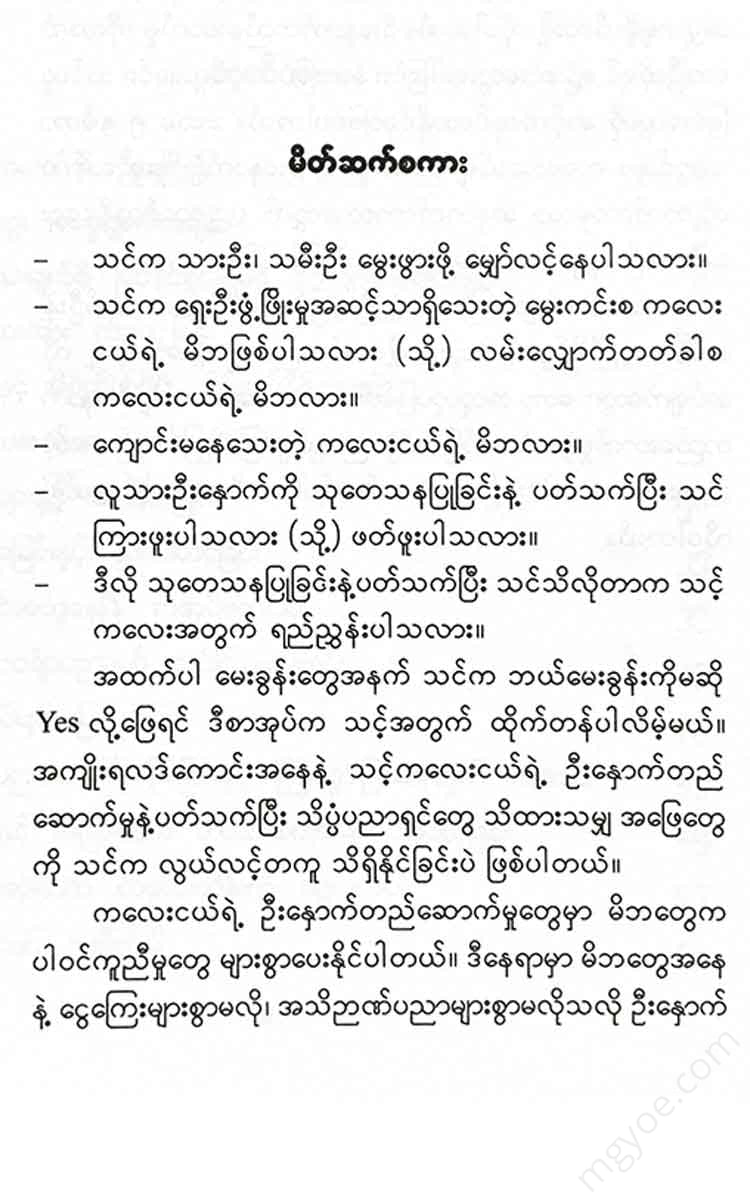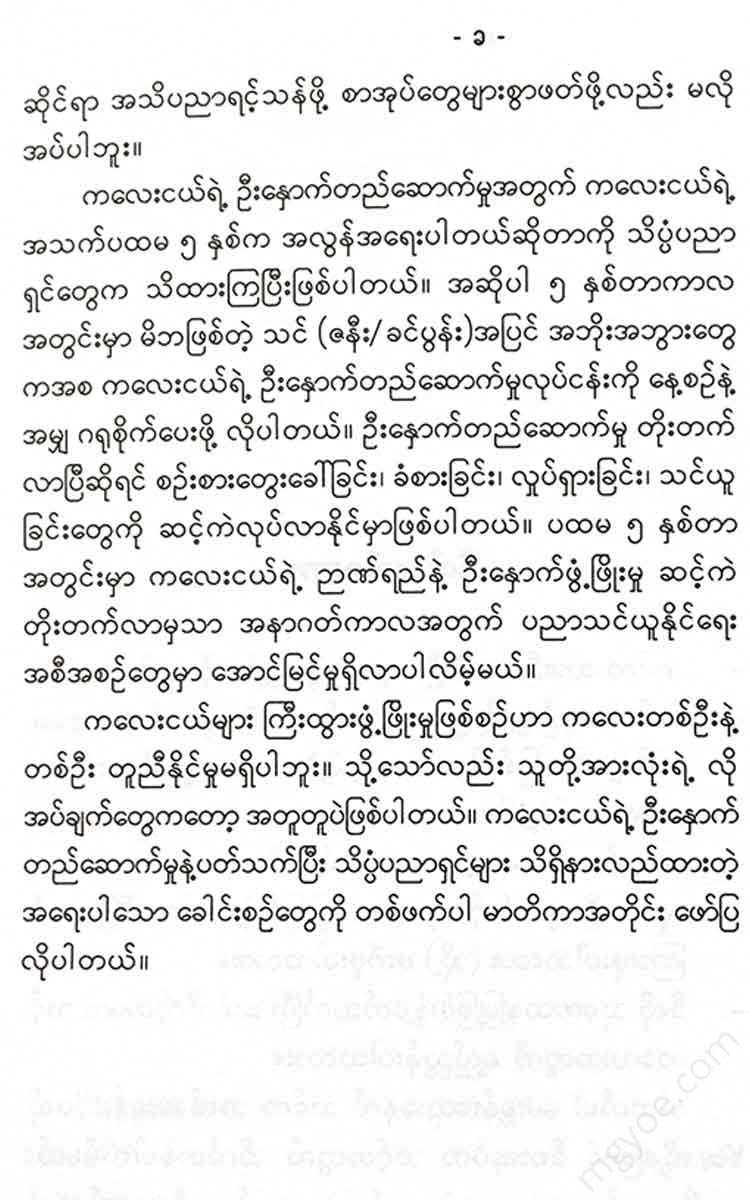စိတ်ကူးချိုချိုစာပေ
Aunty Cho - How to build and train your child's brain
Aunty Cho - How to build and train your child's brain
Couldn't load pickup availability
Your baby's brain
At birth, every baby's organs, such as the heart, lungs, and kidneys, are fully developed, but they are smaller than those of adults. What's unique is that while these organs are fully developed at birth, the brain is not yet fully developed.
The brain builds itself.
If you live in a city, it is true that many homes have telephones, but you may not be able to use all of them, and you may only be able to use a few that are convenient for you. This situation is similar to the fact that almost all of the telephone systems are not yet fully utilized, and the brain is not yet fully developed in a newborn baby.
Between 6 weeks and 5 months of pregnancy, your baby's brain slowly develops into about 100 billion cells. Some brain cells are involved in the process of birth, while most are not.
During the first 5 years of life, your child's brain is still developing and the brain cells are not yet well-established, making it difficult for them to function properly.
Have you ever noticed that when you walk on a snow-covered road or in a forest with tall grass, it is slow, heavy, and difficult? The way you try to walk in such difficult conditions is similar to the way you try to make your brain work well. Your child uses the five senses of sight, hearing, smell, taste, and touch to develop his brain. The child's brain uses these senses according to their body parts, and the brain's ability to distinguish and recognize everything is trained with many difficulties.
The child experiences the above senses repeatedly, and the brain will remember them again and again. In this way, when the brain and the five senses interact repeatedly, the brain's performance will also improve. The evolutionary process of brain development and the connection between the five senses will depend on the differences in the experiences of each child, and the way that children think, know, feel, act, speak, and learn will differ.
In this natural process, we all humans have fully developed other organs since childhood, but we must accept that the brain is something that we ourselves, or the brain itself, can gradually build, relying primarily on the many experiences of our five senses.
By the age of 3, brain development is accelerating, and the brain's ability to function in speech, behavior, attitude, and emotion is strong and rapid. Just as a tree needs to prune away unnecessary branches to allow the roots to grow stronger, the brain also begins to completely eliminate unused connections or parts that are only used occasionally. In other words, the brain prioritizes the parts that are not used or important.
Windows of opportunity
Scientists say that certain parts of the brain can learn new information more easily than others, and these situations are called windows of opportunity.
Some of these windows open during the first few years of life and then close again. For example, the brain's visual processing begins in the first 3-4 months, and if it is not able to function during those 3-4 months, permanent vision loss will result.
(We will discuss the possibility of a child losing their vision later.)
Other windows of opportunity are still open for a long time. In that situation, there is easy learning. Especially the first 5 years are the best time for education. The best time for education does not mean that you have to go to school at the age of 5. It only means that the brain is starting to develop strong memory skills. The best time for education is from the age of 5 to around 15 and 20, when the brain has high intelligence, high memory skills and can learn advanced knowledge and can think well.
Nourishing the brain
There are many ways to nourish your baby's brain. Talking to your baby, reading to them, singing songs with them, and spending time with them are all ways to nourish your baby's brain.
Feeding your baby nutritious food helps all parts of your body, including your brain, grow, and if you combine that with maternal love, your brain's development will be more exceptional than normal.
If your baby was born prematurely or with a physical disability, you can help your baby's brain develop by providing them with good experiences involving the five senses and by providing them with nutritious food. If necessary, you should consult a doctor who specializes in your baby's brain.











